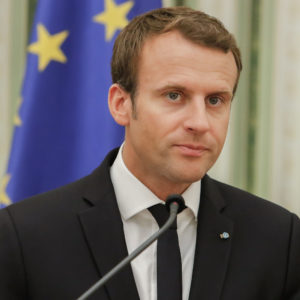French President Emmanuel Macron’s recent call for the creation of a “real European army” is a product of a perfect storm in which Paris’ decades-long effort to break the European continent free of leadership from Washington has been boosted by President Donald Trump’s obvious disdain for NATO and America’s European allies.
One can well imagine the U.S. president’s response to Macron’s initiative as: “Go for it Europe; about time you got serious about defending yourselves and stopped free-riding off the U.S.”
But neither Macron’s proposal to establish a European army autonomous from American participation, nor Trump’s seeming reluctance to stand firmly behind our long-standing treaty commitment to defend alliance members from attack, are what thoughtful statesmen should be doing at this moment in history.
Until the European Union is truly a sovereign, unified state — and not an amalgamation of 28 distinct governments as it is today — there can be no politically viable “supreme command” over such a force. Even if it were possible to get an agreement among the various capitals to create a European army, its utility would be minimal since employing it would require a consensus among those same capitals about when to do so.
And since it’s a rare thing when leaders from Paris, Berlin, Rome, Madrid, The Hague, Stockholm and elsewhere agree about what constitutes a threat, how to prioritize the threats they face and, even more fundamentally, whether using the armed forces are the appropriate response to any given threat, a European armywould likely be a costly and largely symbolic conceit to the idea of European strategic autonomy.
And it would be costly. The idea that Europe could pool their various national military resources to create a viable force assumes that there already exists the kind and quantity of capabilities necessary to do so. But, as one recently retired German general has noted, true strategic autonomy would require the EU to acquire “an independent European nuclear deterrent, the ability to ensure the collective defense of Europe, and the ability to carry out military-crisis interventions anywhere in the world.”
For a continent whose major powers are struggling to increase military spending and still have not met the NATO-agreed target of spending 2 percent of national GDP on the military, it seems a stretch to suggest there exists the fiscal or political wherewithal to resource adequately a European army that could truly replace NATO’s operational and deterrent capabilities.
But it’s no less a conceit to believe that the United States is better off jettisoning its European allies. America’s leaders once understood that peace and stability on the two ends of the Eurasian continent were essential not only for the welfare of the peoples there but also of vital importance to the United States. Without strong alliances, the ensuing power vacuum will almost certainly lead authoritarians like Russia’s Vladimir Putin and China’s Xi Jinping to take advantage of a divided array of lesser powers and, in turn, lessen the political, diplomatic and economic sway of the United States.
The great power peace that the West has enjoyed since the end of World War II is not a natural state of affairs if history is any guide: it rests on a security order established by Washington in conjunction with democratic allies in Asia and Europe. It’s easy to lose sight of that fact as we assume the order’s benefits and only focus on the immediate costs of maintaining it.
It’s true of course that the allies can and should do more to increase their military capabilities. But Washington shouldn’t forget that those same allies have been with us in the Balkans, Afghanistan and the various conflicts in the Middle East.
The fact is, as a congressionally mandated report by the National Defense Strategy Commission recently concluded, the U.S. military is not sized adequately to carry out the administration’s own National Security Strategy. Indeed, according to the bipartisan panel of national security experts, “The security and wellbeing of the United States are at greater risk than at any time in decades.”
In short, the United States needs allied support and will continue to do so as our own resources for defense are squeezed by rising entitlement spending and interest payments on the national debt.
Americans are reluctant to play the world’s policeman. Understandably, so. But ask any cop on the beat and he’ll tell you, it’s always better to have partners and colleagues you’ve trained with for backup when things turn rough.

